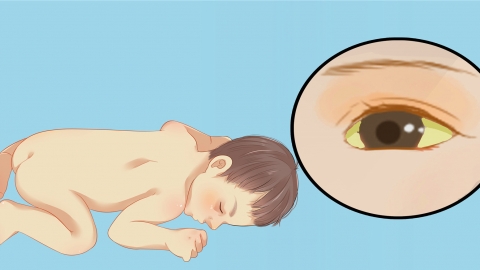What are the causes of neonatal jaundice?
Generally, neonatal jaundice may be caused by excessive bilirubin production, insufficient liver metabolism, breast milk jaundice, neonatal hepatitis, hemolytic jaundice, and other reasons. If jaundice persists or worsens, timely medical consultation is recommended. Detailed analysis is as follows:
1. Excessive Bilirubin Production
Newborns have a high number of red blood cells with short lifespans. After red blood cell destruction, excessive bilirubin is produced. However, the liver's ability to process bilirubin is not yet fully developed, making jaundice more likely to occur. Increasing feeding frequency can promote bilirubin excretion through increased milk intake and bowel movements. Gently patting the newborn's back after each feeding helps digestion and prevents vomiting, which may affect food intake.
2. Insufficient Liver Metabolism
Enzymes involved in bilirubin metabolism in the newborn's liver have low activity, making it difficult to convert and excrete bilirubin from the body in a timely manner, resulting in bilirubin accumulation and jaundice. Ensuring adequate sleep for the newborn provides favorable conditions for liver metabolism. Probiotics may be appropriately supplemented under medical guidance to regulate intestinal flora and indirectly promote bilirubin metabolism.
3. Breast Milk Jaundice
In some newborns, certain components in breast milk may affect bilirubin metabolism, causing jaundice that lasts longer than usual, although the infant generally remains well. Breastfeeding may be temporarily stopped for 1-2 days under medical evaluation, switching to formula feeding to observe changes in jaundice. After resuming breastfeeding, jaundice levels should be closely monitored, as it typically does not cause adverse effects on the newborn.

4. Neonatal Hepatitis
Viral infection of liver cells or bacterial infection and its toxins interfering with bilirubin metabolism can elevate bilirubin levels, leading to jaundice. Treatment should be guided by a physician using medications such as amoxicillin-clavulanate potassium for oral suspension, cefaclor for oral suspension, and ganciclovir injection.
5. Hemolytic Jaundice
Hemolytic jaundice may occur due to blood type incompatibility between the newborn and mother, causing massive red blood cell destruction and a rapid rise in bilirubin levels. Jaundice appears early and is severe, possibly accompanied by anemia. Immediate medical attention is required. Treatment under medical guidance may include human albumin injection, intravenous immunoglobulin, phenobarbital sodium injection, and, if necessary, exchange transfusion.
In daily life, closely observe changes in the newborn's skin and scleral jaundice, and record the onset, resolution time, and severity of jaundice. Regularly take the newborn for physical examinations to promptly detect and manage any abnormalities.






